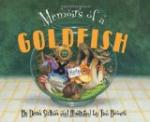As for central Europe, it is a shocking fact that I never knew there was not some interdependency between Austria and Germany until last summer. I only found out the contrary when I started to motor through the Austrian Tyrol and was held up by the custom officers on the frontier. I knew that an old emperor named William somehow founded the German Empire out of little states, with the aid of Bismarck and Von Moltke; but that is all I know about it. I do not know when the war between Prussia and Austria took place or what battles were fought in it.
The only battle in the Franco-Prussian War I am sure of is Sedan, which I remember because I was once told that Phil Sheridan was present as a spectator. I know Gustavus Adolphus was a king of Sweden, but I do not know when; and apart from their names I know nothing of Theodoric, Charles Martel, Peter the Hermit, Lodovico Moro, the Emperor Maximilian, Catherine of Aragon, Catherine de’ Medici, Richelieu, Frederick Barbarossa, Cardinal Wolsey, Prince Rupert—I do not refer to Anthony Hope’s hero, Rupert of Hentzau—Saint Louis, Admiral Coligny, or the thousands of other illustrious personages that crowd the pages of history.
I do not know when or why the Seven Years’ War, the Thirty Years’ War, the Hundred Years’ War or the Massacre of St. Bartholomew took place, why the Edict of Nantes was revoked or what it was, or who fought at Malplaquet, Tours, Soissons, Marengo, Plassey, Oudenarde, Fontenoy or Borodino—or when they occurred. I probably did know most if not all of these things, but I have entirely forgotten them. Unfortunately I manage to act as if I had not. The result is that, having no foundation to build on, any information I do acquire is immediately swept away. People are constantly giving me books on special topics, such as Horace Walpole and his Friends, France in the Thirteenth Century, The Holland House Circle, or Memoires of Madame du Barry; but of what use can they be to me when I do not know, or at least have forgotten, even the salient facts of French and English history?
We are undoubtedly the most superficial people in the world about matters of this sort. Any bluff goes. I recall being at a dinner not long ago when somebody mentioned Conrad II. One of the guests hazarded the opinion that he had died in the year 1330. This would undoubtedly have passed muster but for a learned-looking person farther down the table who deprecatingly remarked: “I do not like to correct you, but I think Conrad the Second died in 1337!” The impression created on the assembled company cannot be overstated. Later on in the smoking room I ventured to compliment the gentleman on his fund of information, saying:
“Why, I never even heard of Conrad the Second!”
“Nor I either,” he answered shamelessly.
It is the same with everything—music, poetry, politics. I go night after night to hear the best music in the world given at fabulous cost in the Metropolitan Opera House and am content to murmur vague ecstasies over Caruso, without being aware of who wrote the opera or what it is all about. Most of us know nothing of orchestration or even the names of the different instruments. We may not even be sure of what is meant by counterpoint or the difference between a fugue and an arpeggio.




